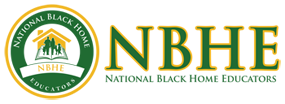25 Things That Every Kid Should Know

1. Learn the state capitals…especially the state in which you live.
2. Complete a state/country profile (request Joyce Burges’ blank profile for countries and states)
3. Learn the 7 continents and complete a map of each one.
This is a great way to brush up on your geography skills and you can also tie it in with a unit study on a particular country. This can be a great supplement to your studies in history and social science.
4. Learn the names of the Science Classifications and their meanings, i.e. biology the study of life…e-mail us to request Joyce Burges’s Science Classifications
5. Learn the names of all of the Presidents of the United States…write interesting facts about each one
6. Learn the names of artists and their famous works, i.e. Claude Monet, a French Impressionist, make sure to include African American Artists
8. Watch the birds that fly near your home, learn their names, suggestion: build a birdhouse
9. Learn the names of the Master Composers: Mozart, Bach, Chopin, William Dawson, Scott Joplin, Beethoven, Duke Ellington, etc. Listen to classical music
10. Learn to complete crossword puzzles and hidden word puzzles (excellent road trip lessons…find specific grade levels for child)
11. Learn to play board games as a family: Monopoly, Candy Land, Scrabble
12. Learn the names of at least 10 American poets: Phyllis Wheatley, Emily Dickinson, Paul Laurence Dunbar, etc.
13. Learn the names of at least 10 American authors and their works, Walter Dean Myers, Sharon Foster, Mildred Taylor, Jane Austen, Mark Twain, Edgar Allen Poe, etc.
14. Read at least two Shakespeare works each year and select a saying from each one for example – “He wears the rose of youth upon him.” Antony & Cleopatra, Act 3…Scene X111
Shakespeare was arguably the greatest writer in the English language, and his plays provide remarkable insight into personal character, romance, friendship, statesmanship, and the list goes on! Engaging with these classics from the Western Tradition is an important way for your students to understand themselves and the world in which they live.
15. Learn the Pledge of Allegiance
16. Learn the National Anthem
17. Learn Lift Every Voice and Sing
This song is important for every African-American student to know. It was written in 1900 by James Weldon Johnson who wanted to celebrate Lincoln’s birthday. In 1919, the NAACP called it “the Negro national anthem.” The song calls us to a sing “a song full of the faith that the dark past has taught us,
Sing a song full of the hope that the present has brought us.
Facing the rising sun of our new day begun,
Let us march on till victory is won.”
18. Learn the Preamble to the Constitution (Have younger children learn this as well. Memorization sharpens the mind of a child.)
Memorization is a key aspect of civic education. Encourage your student to memorize The Preamble of the United States Constitution: “We the People of the United States, in Order to form a more perfect Union, establish Justice, insure domestic Tranquility, provide for the common defence, promote the general Welfare, and secure the Blessings of Liberty to ourselves and our Posterity, do ordain and establish this Constitution for the United States of America.”
20. Learn parts of the Constitution especially the 13th, 14th, 15th, and 19th amendments
21. Learn about your Elected Officials (especially local and state)
Your vote matters, especially in local elections where there is a smaller number of voters. It is important to stay engaged in what is happening in your community, and by teaching your students about their local and state officials, you are helping them to understand the importance of civic engagement.
22. Learn about Dr. Martin Luther King, Jr., and memorize parts of his famous “I Have A Dream” speech
In his famous speech I Have a Dream, Dr. Martin Luther King Jr., declared that “now is the time to rise from the dark and desolate valley of segregation to the sunlit path of racial justice. Now is the time to lift our nation from the quicksands of racial injustice to the solid rock of brotherhood. Now is the time to make justice a reality for all of God’s children.”
23. Memorize the Gettysburg Address… President Lincoln’s Speech
Abraham Lincoln’s Gettysburg Address is one of the greatest speeches in American history, and it is also one of the shortest! We highly encourage you to have your student memorize this great speech which calls us “to be dedicated here to the unfinished work which they who fought here have thus far so nobly advanced.”
24. Learn about mathematical concepts such as the names of the numbers in an addition, subtraction, multiplication and division problems ( ex. addend plus addend equals sum)
25. Learn how to count by 2s, 5s, 10s, and 100s, etc.
It is also important for your study to memorize basic math facts like multiplication tables. This kind of memorization aids conceptual understanding and will speed up your student’s ability to work through more complex math problems like long division and algebraic solving for unknown variables.
To request Joyce Burges’ supplemental resources you may email us at burges1@outlook.com.
